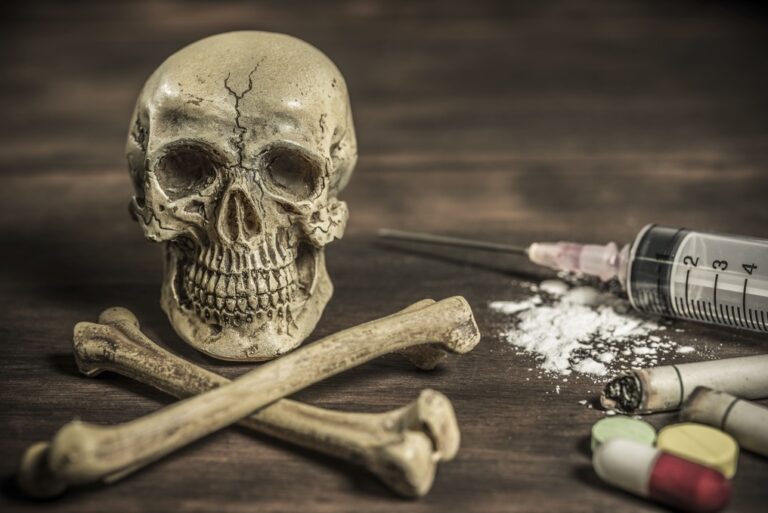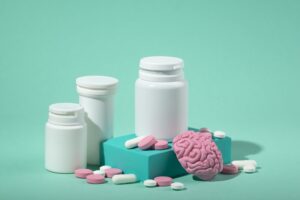Heroin addiction is a complex and devastating condition that affects people, families, and communities worldwide. The physical and psychological grip of heroin and or opioids, makes overcoming addiction a huge challenge. Advancements in the understanding of addiction have led to the development of various treatment options. This exploration shows numerous aspects of opioid addiction treatment, including pharmacological interventions, behavioral therapies, holistic approaches, and the challenges faced in achieving successful outcomes.
Understanding heroin addiction
Heroin, an opioid derived from morphine, binds to Mu, Kappa, and Delta receptors in the brain, leading to euphoria and a sense of relaxation, patients refer living an inmediate solution to all their problems when reaching intoxication. Regular use can result in tolerance, dependence, and addiction. The withdrawal symptoms associated with heroin cessation contribute to the cycle of addiction, making it challenging for individuals to quit without professional help.
Pharmacological interventions
Medication assisted treatment involves the use of medications to manage withdrawal symptoms, reduce cravings, and promote recovery. Methadone, buprenorphine, and naltrexone are common medications used in MAT. Methadone and buprenorphine are opioid agonists that help individuals gradually taper off heroin, while naltrexone blocks opioid receptors, preventing the effects of heroin.
Methadone has been a longstanding medication in heroin addiction treatment. Administered through authorized clinics, it helps manage cravings and withdrawal symptoms. Unfortunately methadone pharmacological properties can lead to misuse, with a single dodage of unprescribed methadone patients can experiment heroine intoxication like effects.
The controlled and supervised administration of methadone reduces the risk of misuse.
Buprenorphine is a partial opioid agonist that activates opioid receptors to a lesser extent than heroin. It can be prescribed by qualified healthcare providers in office-based settings, enhancing accessibility compared to methadone, as this drug wont cause highly searched intoxication like effects.
Naltrexone, an opioid receptor antagonist, blocks the effects of opioids. It is typically used after detoxification to prevent relapse. Compliance can be a challenge as individuals must be committed to maintaining abstinence through drug daily intake.
Behavioral Therapies
Cognitive behavioral therapy is widely used in addiction treatment to identify and modify maladaptive thoughts and behaviors. It helps individuals recognize triggers for drug use, develop coping mechanisms, and build skills to prevent drug intake, health risk behaviors and relapse.
Contingency management is a behavior therapy that reinforces positive behaviors with tangible rewards. This approach has shown effectiveness in promoting abstinence by providing incentives for drug-free urine samples.
Motivational enhancement therapy aims to enhance an individual’s motivation to change. Therapists use empathetic communication to explore and resolve ambivalence about quitting heroin. It is often used as a precursor to other behavioral interventions.
Dialectical behavior therapy originally developed for borderline personality disorder, has been adapted for substance use disorders. It combines cognitive behavioral techniques with mindfulness and acceptance strategies.
12-Step Programs like Narcotics anonymous and Alcoholics anonymous offer a supportive, peer driven approach to recovery. Emphasizing spiritual and moral development, these programs provide a sense of community and accountability. On the down side, this type of treatments focus in abtinence as the key element, leaving aside treating mental heath base problems, leaving patients al high risk.
Holistic Approaches
Yoga and meditation can enhance mindfulness, stress reduction, and overall wellbeing. These practices contribute to a holistic approach by addressing the physical, mental, and emotional aspects of addiction.
Interms of nutritional therapy, substance abuse often leads to nutritional deficiencies, nutritional therapy aims to restore balance through a well rounded diet and supplements, addressing physical health as a component of overall recovery.
Exercise and physical activity can contribute to improved mood, reduced stress, and enhanced overall health. Including exercise in a treatment plan promotes a positive lifestyle change.
Art and music therapy provide a non-verbal outlet for expression and self-discovery. Engaging in art or music therapy can help individuals explore emotions, reduce stress, and find alternative ways to cope with challenges.
Challenges in heroin addiction treatment
The stigma associated with addiction can hinder individuals from seeking help. Overcoming societal misconceptions about addiction is crucial for fostering a supportive environment for those in recovery.
Dual Diagnosis, many individuals with heroin addiction also have co occurring mental health disorders. Treating both addiction and mental health issues concurrently is essential for comprehensive care.
Disparities in access to addiction treatment exist globally. Barriers include financial constraints, limited treatment facilities, and social stigma, emphasizing the need for improved accessibility.
Relapse risk, opioid addiction has a high relapse rate. It is essential to view relapse as part of the recovery process, address contributing factors, and provide ongoing support to prevent a return to problematic substance use.
Treatment engagement is needed in order to motivate individuals to remain engaged in treatment, this remains a common challenge. Factors such as ambivalence, external pressures, or the chronic nature of addiction can contribute to treatment dropout.
Hope for recovery
The concept of a continuum of care recognizes that recovery is an ongoing process. Gradual transitions from intensive treatment to less intensive support help individuals maintain progress and address changing needs.
Peer support, whether through 12-step programs, group therapy, or sober living environments, plays a crucial role in sustaining recovery. Shared experiences foster understanding and provide a sense of community.
Family involvement is a big must in addiction treatment, involving family members in the treatment process can strengthen support systems. Family therapy helps address underlying issues, improve communication, and create a more conducive environment for recovery.
Recognizing and respecting diverse cultural backgrounds is essential for effective treatment. Culturally competent approaches consider individual values, beliefs, and experiences, enhancing the relevance and success of interventions.
Public education and advocacy efforts contribute to reducing stigma, increasing awareness, and influencing policy changes that support addiction treatment. Efforts to destigmatize addiction can encourage individuals to seek help without fear of judgment.
Heroin addiction treatment is a multifaceted endeavor that requires a comprehensive and individualized approach. Pharmacological interventions, behavioral therapies, and holistic approaches collectively address the complex interplay of physical, psychological, and social factors associated with addiction. However, persistent challenges, such as stigma and limited access to treatment, underscore the need for continued efforts to improve the effectiveness and availability of heroin addiction treatment. With a commitment to understanding the diverse needs of individuals, fostering supportive environments, and advancing evidence-based practices, there is hope for recovery and a brighter future for those grappling with heroin addiction.
Needless to say al OCEANICA we offer cutting edge tech treatments that help our patients improve many mental health conditions includig those addition related problems.
You may also be interested in: How Their Parents’ Drug Addiction Affects Children











